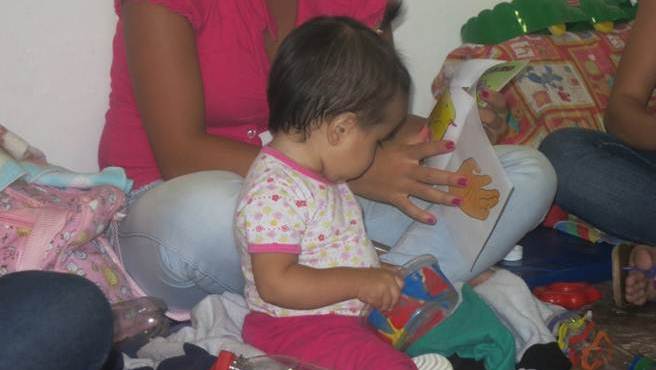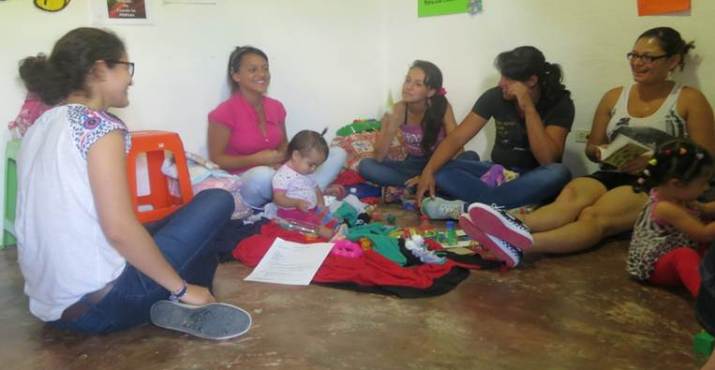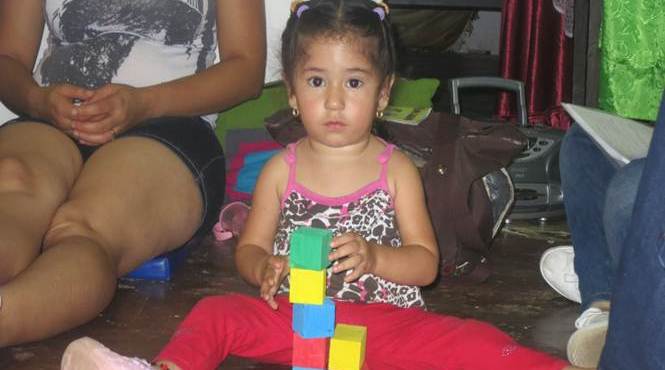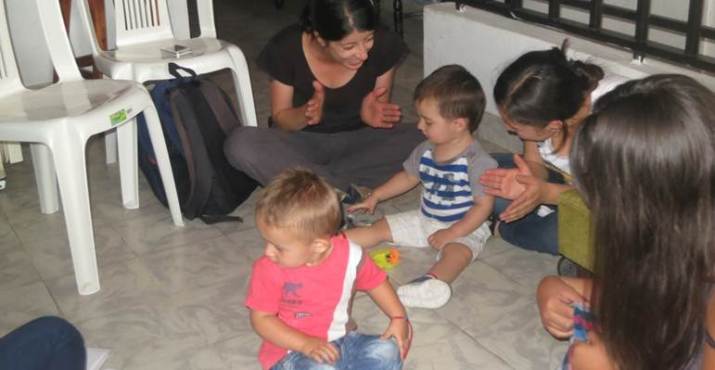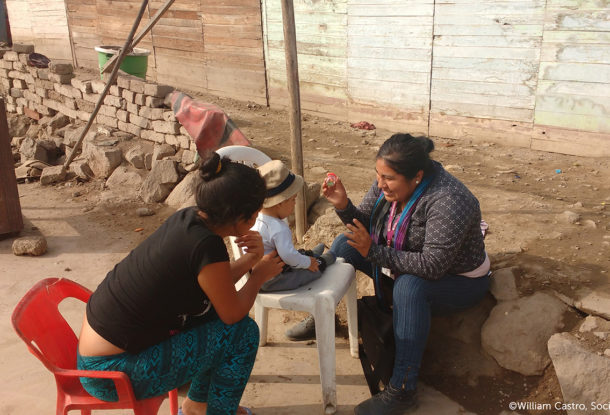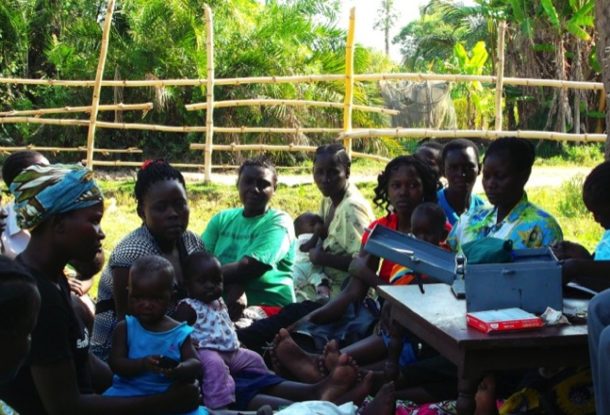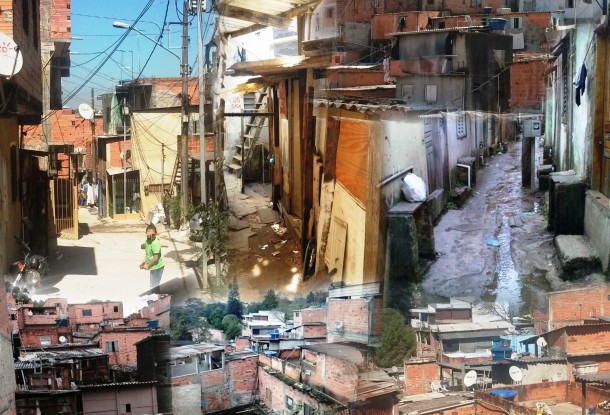Innovation Summary
Though children living in rural parts of Colombia rank lower than their urban counterparts in all dimensions of development, a recent survey revealed that the current infrastructure for services for all children is inadequate. In this context, the Colombian government launched a national early childhood strategy (“De Cero a Siempre, From Birth to Forever” [2]) to provide improved childcare to approximately 1.2million poor children. As part of this strategy, it has been proposed to improve the quality of the Family, Women and Childhood Home Visiting Program (FAMI) as well.
This project aims to design, pilot, implement and evaluate a curricular improvement to FAMI services aimed at pregnant women and children younger than 2 in rural areas. In addition, we will diagnose and propose an improvement to childcare services provided to these children after the age of 2 in the same towns. The intended outcome is to reduce the socioeconomic achievement gap of children 0-2 years of age in Colombia.
The proposed curricular improvement consists of a set of activities aligned with the child development trajectory, that aim to:
- Promote child development (cognition, verbal, motor).
- Promote optimal maternal-child interaction.
- Educate about nutrition and supplementation.
The innovation also includes a coaching and training component for program facilitators that builds skills such as active listening and collaboration.
Gallery
Impact
- 2,900 children served by the curricular improvement and expected to have improved nutritional, cognitive and psycho-social outcomes.
- At least 40% of primary caregivers expected to change parenting practices and routines at home.
Innovation
FAMI is a parenting program provided by a community mother to pregnant women and parents of children 0 to 2 years of age. This innovation has developed curricular improvement to FAMI services, primarily aimed at supporting the mother in her parenting skills and teaching her how to promote her child’s development through appropriate play activities. This means the focus is on the mother and on making sure the mother not only understands the activities, but is able and willing to do them at home. The intervention is delivered through group meetings and home visits. It is expected that the child will learn over time as the mother does the activities with them in the home, rather than learning directly in the group sessions or home visit. For this reason, the intervention (i.e. home visits and group sessions) concentrates mostly on what the mother does, not on what the child does.
Self-Esteem, Confidence and Motivation Support
One aspect of supporting the mother is to build her self-esteem and to motivate her to learn and understand the importance of parenting skills. The intervention works to achieve this by:
- Praising the mother when she completes the activities with her child.
- Refraining from criticizing the mother, instead looking for and emphasizing the positive interactions that occur between mother and child.
- Asking about activities that the mother already engages in and trying to build on them.
Group sessions are a great opportunity to build mothers’ confidence, self-esteem and motivation. The intervention uses group sessions to achieve this by:
- Encouraging mothers to talk with each other and to share ideas and experiences.
- Fostering a positive and encouraging atmosphere within the group, by celebrating mothers’ skills and practices of playing with and stimulating their child, and the children’s developing skills.
Home Visiting and Group Meeting Curriculum
Based on this philosophy, a home visiting curriculum has been designed with 24 different sessions and a group meeting curriculum with 19 different sessions. The curriculum consists of a developmentally sequential set of activities to promote child development (cognition, verbal, motor), optimal maternal-child interaction and provide nutrition education and supplementation. Each group meeting session consists of (1) feedback on previous session, (2) song, (3) one play and language activity, (4) main message to be discussed (e.g., helping your child learn to behave well), and (5) discussion of home activities. In each case, a session is developed to include age-appropriate play activities for children birth to five months, 6-11 months and 1-2 years of age. All play activities are based on home-made toys and mostly recyclable materials.
Tutors to Train Program Facilitators
A group of nine tutors have been identified and hired to serve as trainers of program facilitators. The tutors will provide coaching, monitoring and supervision for program facilitators after their initial training and throughout program implementation for the duration of the project. Tutors have been trained in program curricula for a total three weeks and will be trained in supervision techniques for one week. Tutors will carry out supervision and coaching sessions with each FAMI program facilitator at least every 5 weeks.
Collaboration
Funders
- Fundación Éxito, Medellín (Colombia)
- Grand Challenges Canada (Canada)
Key Partners
- Fundación Éxito (Colombia)
- Instituto Colombiano de Bienestar Familiar (Colombian Family Welfare Agency – ICBF) in Colombia
- National Planning Department (Colombia)
- Inter-sectorial Early Childhood Committee (Colombia)
- Health Ministry (Colombia)
Evaluation Methods
The innovation will be evaluated through a randomized controlled trial (RCT) design.
The curricula were piloted during four months in 5 FAMI sites in three different towns in order to assess socioeconomic and cultural appropriateness of sessions, materials and program philosophy. After adjustments that resulted from piloting, a final version of the curriculum was prepared.
Prior to initiation of the intervention, data will be collected on parental practices and routines at home, parental knowledge about infant development and a variety of sociodemographic characteristics including maternal language skills, personality indicators and maternal mental health. In addition, children’s anthropometric measures and WHO milestones will also be collected.
Immediately after the end of the 18-month intervention, data will be collected on child cognitive development, psychosocial development, and nutritional status by anthropometric measures. Data on process/implementation will also be collected through a FAMI program facilitator questionnaire and a variety of supervision and session observation forms. Program effects will be estimated by using a difference-in-difference approach.
Impact of Innovation
- 70 children 0-2 years of age have already received the intervention during our mini pilot in 5 program sites in three different rural towns in Colombia.
- 96 semi-urban and rural towns in Colombia are expected to be randomly assigned to treatment and control groups, with 48 towns in each arm.
- In each town approximately four FAMI and 20 children will be included in the study sample for a total of 380 FAMI and 2,000 children aged 0-12 months at baseline.
Cost
- Estimated one-time cost of $250 (USD) in materials for curricula implementation.
- Estimated $36 (USD) child/year for training and continuous coaching/supervision of FAMI program facilitators for quality assurance.
- Cost-effectiveness will be calculated when program impacts are measured.
References
- De cero a siempre. http://www.deceroasiempre.gov.co/Paginas/deCeroaSiempre.aspx
